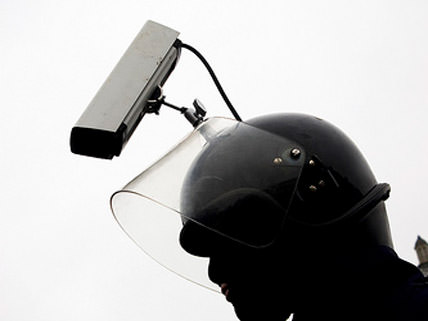Military-Grade Facial Scans Coming Soon, Promises DHS

Thanks to millions of dollars of Department of Homeland Security (DHS) research, local police may soon have military-grade facial scanning technology to use on civilian crowds.
Ginger McCall of the Electronic Privacy Information Center (EPIC) made a freedom of information request to the DHS earlier this year. She received a 67-page document about a "3D biometric facial imaging" program called the Biometric Optical Surveillance System. Also known as BOSS, the program's goal is "to determine if persons entering areas are currently on federal watch lists." BOSS has been in the works for several years.
McCall is skeptical. "This technology is always billed as antiterrorism, but then it drifts into other applications. We need a real conversation about whether and how we want this technology to be used, and now is the time for that debate," she said to the New York Times. She pointed out that using a "comprehensive database of driver's license photographs," the government could easily use BOSS technology to "systematically track everyone's public movements."
The New York Times explains that "BOSS research began as an effort to help the military detect potential suicide bombers and other terrorists overseas at 'outdoor polling places in Afghanistan and Iraq,' among other sites."
However, the DHS decided to gear its technology toward local police forces in 2010. Sen. Mitch McConnell (R-Ky.) earmarked $5.2 million for Electronic Warfare Associates (EWA), a military contractor. Although the organization is still improving the speed and distance at which its computers can analyze and catalog a face, one expert told The New York Times that the equipment will be ready in as little as five years.
Concerns about the loss of privacy may not be far off point, as the FBI is also working on its own facial recognition program, called Next Generation Identification. Setting its sights on facial, retina, fingerprint, and even tattoo cataloging, the FBI, like the DHS, insists that such data accumulation is needed domestically for national security.


Show Comments (25)